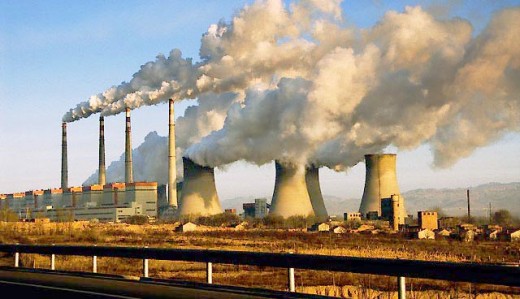Over 20 non-governmental organisations (NGOs) are calling on Chinese banks to withdraw their financial support to the Hunutlu coal-fired power plant that is being constructed in the Yumurtalik District of Adana, Turkey.

While highlighting the lack of compliance with the law and environmental degradation, the organisations have initiated a petition to halt the construction of the power plant, asking for Chinese banks to withdraw from the project and instead provide financial support for sustainable and renewable energy investments in Turkey.
A spokesperson representing the NGO groups said: “An investment at this scale needs to benefit both China and Turkey, most importantly the local communities who will bear the impacts of the coal plant. We do not believe that the project that will operate on imported coal will provide any benefit to our communities and our country due to the negative impacts on the environment, climate and biodiversity.
“We demand support for clean sectors such as solar and wind which would benefit stakeholders in Turkey and China and we ask the Chinese banks to act on the basis of sustainable development and comply with China’s green financing policies.”
Scientific research conducted by the Centre for Research on Energy and Clean Air (CREA) and the Health and Environment Alliance (HEAL) reveals that air pollutant emissions from the project would be responsible for a projected 2,000 premature deaths in the operating lifetime of the plant.
There are already three plants (Tufanbeyli, Atlas and Isken Sugözü) in the region and could result in 7,400 deaths over the operating period, claims the activists, adding that the emissions control technology the project developers plan to use is far weaker than that required for new projects in China.
The letter has reportedly been sent to three banks – China Development Bank, ICBC and Bank of China – and to Shanghai Electric, the largest shareholder of the power plant.
The NGOs appear to be addressing the negative impacts of the power plant on human health, biodiversity, agricultural production, and climate. They insist that project, which is defined as a ‘’key project within the Belt and Road Initiative’’ does not comply with the regulations in Turkey and international agreements in addition to the controversies that the project poses to China’s green finance policies.
According to them, the project site is already struggling with intensely polluted air. The letter points to the excess amount of air pollution that is above the limit even when measurements were conducted during the summer period when the quality of air was at its highest.
HEAL further estimates that the death of one out of five people are attributable to air pollution amongst people over the age of 30 in 2019 in Adana, a city with a population above two million. Cancer incidents in Yumurtalık have also increased by 11-fold between 2009-2014 in parallel, says the group.
Sugözü Beach, where the power plant is being constructed, is an important sea turtle nesting area that is under protection based on the Memorandum 2009-10 regarding Protection of Sea Turtles, issued by the General Directorate of Nature Conservation and National Parks.
The construction of the power plant, it was gathered, also violates the Bern Convention, posing a threat to the nesting sites of green sea turtles, which has been listed among “endangered species” by the International Union for Conservation of Nature (IUCN). The project also violates Articles 8d, 8k and 14c of the Convention on Biological Diversity of which China and Turkey are signatories.
The organisations highlight the withdrawal of Engie – the French utility – in November 2015 from another coal power plant in Yumurtalik within the Iskenderun Bay due to oppositions in local and international levels. The NGOs also highlight the litigation process that was concluded in December 2019 with the decision to cancel the construction of another coal power plant -that is 20 km to Hunutlu- due to the existence of endemic species within the project site.
Dr. Sadun Bölükbaşı, East Mediterranean Platform of Environment Associations, said; “Two months ago, we asked the Chinese banks for a face-to-face meeting or a meeting over the phone to evaluate the power plant with the local stakeholders in our letter. Unfortunately, to date, we have not received a response and sent another letter to them last week to maintain communication channels open and repeat our invitation to a meeting.
İsmail Hakkı Atal, Volunteer Lawyer of East Mediterranean Environmental Associations Platform: “The Project in construction violates Turkish regulations, international agreements and a number of Turkish and European Union air pollution requirements. We filed our lawsuit for cancellation of the electricity production license on the basis of cumulative pollution impacts, since the cumulative assessment hasn’t been made at scale of Iskenderun bay.
“Despite the supporting expert report that reveals increasing cancer rates and confirms project’s non-compliance, the court rejected our case. Therefore, we filed an appeal to the state council. With the alignment of the national air pollution limits with EU requirements, the measurements done in Environmental Impact Assessment report exceeds the limits and are no longer valid.
“Considering the challenging times we’ve been through, public health needs to be at the core of every policy and the construction has to stop immediately in order to conduct a cumulative pollution impact at the scale of the bay.”
